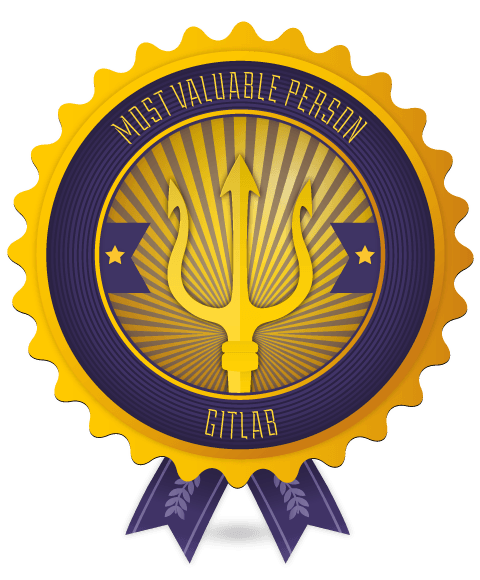Auto-merge when all checks pass
Auto-merge when all checks pass
Merge requests have many required checks that must pass before they are mergeable. These checks can include approvals, unresolved threads, pipelines, and other items that need to be satisfied. When you’re responsible for merging code, it can be hard to keep track of all of these events, and know when to come back and check to see if a merge request can be merged.
GitLab now supports Auto-merge for all checks in merge requests. Auto-merge enables any user who is eligible to merge to set a merge request to Auto-merge, even before all the required checks have passed. As the merge request continues through its lifecycle, the merge request automagically merges after the last failing check passes.
We’re really excited about this improvement to accelerate your merge request workflows. You can leave feedback about this feature in issue 438395.
Extension marketplace now available in the Web IDE
Extension marketplace now available in the Web IDE
We’re thrilled to announce the launch of the extension marketplace in the Web IDE on GitLab.com. With the extension marketplace, you can discover, install, and manage third-party extensions and enhance your development experience. Some extensions are not compatible with the web-only version because they require a local runtime environment. However, you can still choose from thousands of extensions to boost your productivity or customize your workflow.
The extension marketplace is disabled by default. To get started, you can enable the extension marketplace in the Integrations section of your user preferences. For enterprise users, only users with the Owner role for a top-level group can enable the extension marketplace.

Secure sudo access for workspaces
Secure sudo access for workspaces
You can now configure sudo access for your workspace, making it easier than ever to install, configure, and run dependencies directly in your development environment. We’ve implemented three secure methods to ensure a seamless development experience:
- Sysbox
- Kata Containers
- User namespaces
With this feature, you can fully customize your environment to match your workflow and project needs.

List Kubernetes resource events
List Kubernetes resource events
GitLab provides a real-time view into your pods and streaming pod logs. Until now, however, we didn’t show you resource-specific event information from the UI, so you still had to use 3rd party tools to debug Kubernetes deployments. This release adds events to the resource details view of the dashboard for Kubernetes.
This is the first time we’ve added events to the UI. Currently, events are refreshed every time you open the resource details view. You can track the development of real-time event streaming in issue 470042.

GitLab Pages without wildcard DNS is generally available
GitLab Pages without wildcard DNS is generally available
Previously, to create a GitLab Pages project, you needed a domain formatted like name.example.io
or name.pages.example.io. This requirement meant you had to set up wildcard DNS records and
TLS certificate. In this release, setting up a GitLab Pages project without a DNS wildcard has
moved from beta to generally available.
Removing the requirement for wildcard certificates eases administrative overhead associated with GitLab Pages. Some customers can’t use GitLab Pages because of organizational restrictions on wildcard DNS records or certificates.
GitLab Pages parallel deployments in beta
GitLab Pages parallel deployments in beta
This release introduces Pages parallel deployments in beta. You can now easily preview changes and manage parallel deployments for your GitLab Pages sites. This enhancement allows for seamless experimentation with new ideas, so you can test and refine your sites with confidence. By catching any issues early, you can ensure that the live site remains stable and polished, building on the already great foundation of GitLab Pages.
Additionally, parallel deployments can be useful for localization when you deploy different language versions of an application or website.

Summarize issue discussions with GitLab Duo Chat
Summarize issue discussions with GitLab Duo Chat
Getting up to speed on lengthy issue discussions can be a significant time investment. With this release, AI-generated issue discussion summarization has been integrated with Duo Chat and is now generally available for GitLab.com, Self-managed, and Dedicated customers.

Advanced SAST is generally available
Advanced SAST is generally available
We’re excited to announce that our Advanced Static Application Security Testing (SAST) scanner is now generally available for all GitLab Ultimate customers.
Advanced SAST is a new scanner powered by the technology we acquired from Oxeye earlier this year. It uses a proprietary detection engine with rules informed by in-house security research to identify exploitable vulnerabilities in first-party code. It delivers more accurate results so developers and security teams don’t have to sort through the noise of false-positive results.
Along with the new scanning engine, GitLab 17.4 includes:
- A new code-flow view that traces a vulnerability’s path across files and functions.
- An automatic migration that allows Advanced SAST to “take over” existing results from previous GitLab SAST scanners.
To learn more, see the announcement blog.

Hide CI/CD variable values in the UI
Hide CI/CD variable values in the UI
You might not want anyone to see the value of a variable after it is saved to project settings. You can now select the new Masked and hidden visibility option when creating a CI/CD variable. Selecting this option will permanently mask the value of the variable in the CI/CD settings UI, restricting the value from being displayed to anyone in the future and decreasing visibility of your data.







We want to hear from you
Enjoyed reading this blog post or have questions or feedback? Share your thoughts by creating a new topic in the GitLab community forum.
Share your feedback